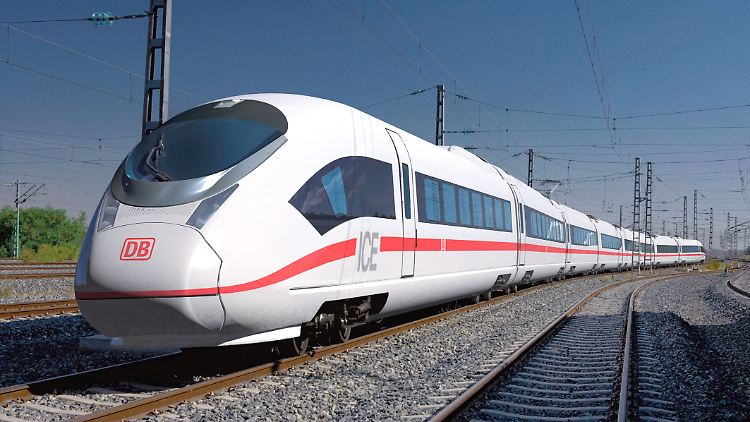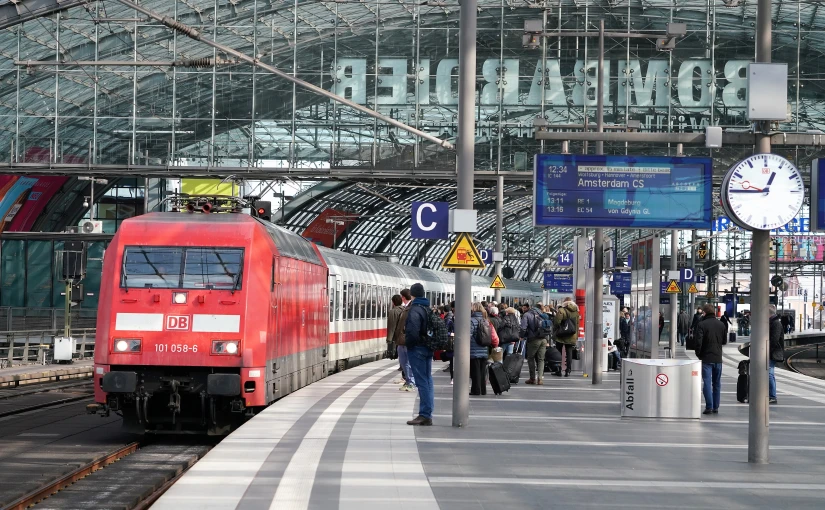The financial struggles of Deutsche Bahn and Dutch NS highlight Europe’s ongoing railway privatization debate. Can ticket revenues cover infrastructure costs, or do subsidies always return? From state-owned companies like PTT and Postbank to today’s rail networks, Germany and the Netherlands face the same challenge: hidden costs, maintenance backlogs, and government guarantee undermining true transport reform. Picture: N-TV.de Today in the Netherlands there was an item in a news broadcast on television that immediately made me think. The item concerned the loss-making Deutsche Bahn. These were the few so-called liberalized German Railways in 2009. Unlike the Dutch railways, the NS,…...
Sign in with Google to continue reading
💬 Meet Our Members

Julia Orozco
Poet who love nature and writing poetry.
Tamizh Ponni VP
Tamizh Ponni VP is an ambivert who loves to express her skills…

Dr. B.H.S Thimmappa
B.H.S. Thimmappa is a seasoned chemistry professional with extensive experience in developing…

Abhinaba Maitra
Abhinaba Maitra is a Kolkata-based writer with a background in software engineering.…

Sindhu Gopalkrishnan
I love writing as I get to create something beautiful and touch…

Khushi Barman
I'm a 22-year-old Indian psychology student. I have a strong interest in…
Support independent journalism. Your membership keeps us going.
The financial struggles of Deutsche Bahn and Dutch NS highlight Europe’s ongoing railway privatization debate. Can ticket revenues cover infrastructure costs, or do subsidies always return? From state-owned companies like PTT and Postbank to today’s rail networks, Germany and the Netherlands face the same challenge: hidden costs, maintenance backlogs, and government guarantee undermining true transport reform.

Today in the Netherlands there was an item in a news broadcast on television that immediately made me think. The item concerned the loss-making Deutsche Bahn. These were the few so-called liberalized German Railways in 2009. Unlike the Dutch railways, the NS, these railways have not yet been privatized in their entirety. The German government has listed 50 percent of the shares on the stock exchange, and "leased" several smaller sections of the German rail network to other entrepreneurs, with the requirement that these tenants had to recoup the costs through the transport revenues.
Can Train Ticket Revenues Cover Rail Infrastructure Costs in Europe?
Every sane company on this earth knows that it will have to deal with profit and loss during its existence. So, we can assume that this has also been well thought out with the state-owned companies, and their takeover, right? But what does win or losing mean, and who knows in advance exactly when what will happen? Were all the figures that were available in advance calculated correctly, and were all the figures available at the time? It strikes me again and again, even after this broadcast about the Deutsche Bahn, that these so-called taken over state companies somehow run out of money again and again later in time. Think, for example, of the Dutch PTT, and the Dutch Railways, or the hospitals or other healthcare companies.
Why Do State-Owned Companies in Europe Struggle with Profitability?
Can you actually compare civil servants with entrepreneurs? Do they monitor the costs of the public domain just like the real entrepreneurs? Or can they present public domains better when sold than they actually are? Are public domains always deliberately sold too cheaply, without the buying party having sufficient insight into the real costs? Are the officials posing as sellers keeping too many hidden jars of "costs" under wraps when selling to private individuals? Or did those officials really have no insight into this? Every time I ask myself these questions again!
Public Sector Employment Costs: Lessons From NS, Postbank, and PTT in the Netherlands
Has the employment offered by the government always been far too expensive for the actual cost estimates? Is it smart to allow the government as an employing partner in our society? Is this one of the reasons why national and international governments always have huge financial deficits? What also strikes me again and again is the sales contracts for these deals. Just note: "again and again governments guarantee any future deficits of the state-owned companies taken over by private individuals." Soestdijk Palace in Baarn is also a good recent example, again the same scenario. "Entrepreneurs, make an offer, because we will subsidize you in the coming years anyway."
Germany vs. Netherlands Railways: Shared Challenges of Privatization
Funny that both in the Netherlands and in Germany the privatized railways and postal companies are now in financial trouble, too much has to be renovated, and the government is being held accountable for this in both countries? If you think a little further than "the end of your nose", then you should also realize that both the economic and the security risk for the citizens of both countries, and perhaps in many more countries, can be seriously endangered by these maintenance backlogs. Think of collapsing buildings, derailing trains, refusing railway crossings, late deliveries or staff arriving late for work.
Who Profits from Rail Privatization? Entrepreneurs vs. State Responsibilities
Who knows? But often if you look further at these companies or business units divested by the governments, you will see that these companies have been immediately divided into different parts by the takeover of the business in question. The Privatized Railways in the Netherlands has cut buildings, companies and the railway company into different parts. The railway, the transport guaranteed by the government, and the buildings with catering establishments have been torn apart into various private limited companies and public limited companies. In all likelihood, the hospitality industry yields much more than the railway and probably needs much less maintenance. But yes, the railways are suffering losses and are of great national importance, so the subsidy pot must be opened again, and we as citizens must pay again.
Hidden Costs of Privatization: Are Citizens Paying the Real Price?
Well, who thinks about this in advance, and why is there almost always a subsidy scheme after a takeover by a private individual of a government agency? Doesn't this simply prove that the governments in the different countries at least handle our money differently than they would have us believe every year on Budget Day? Is that why there are always so many government deficits? Therefore, can't the "real" poor people in our society just be helped by our governments?











